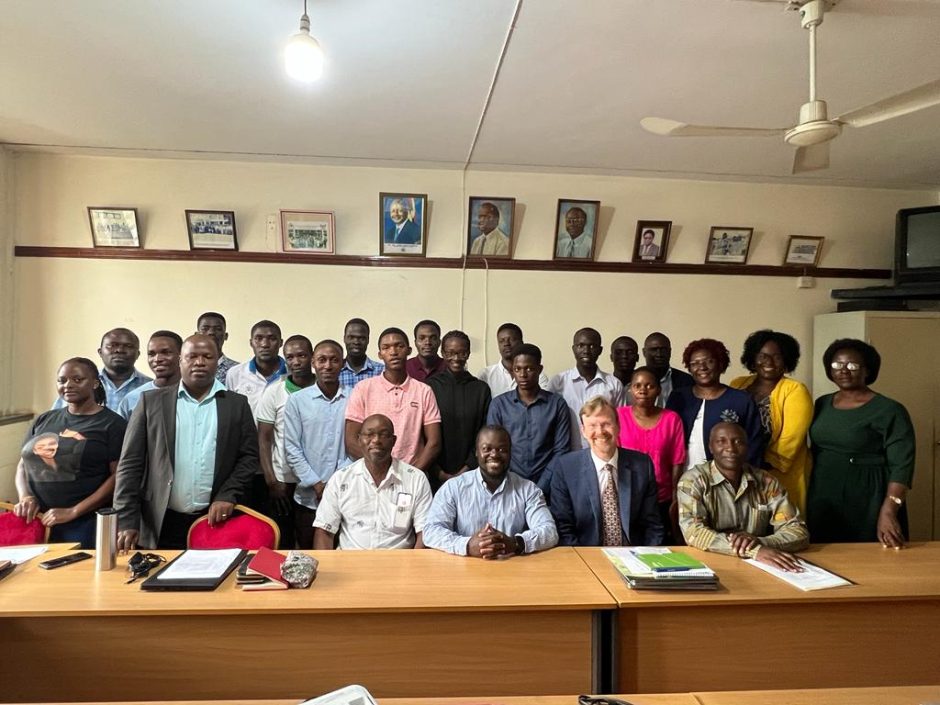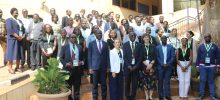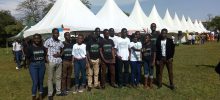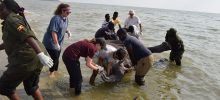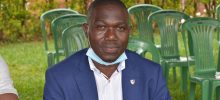UK based Centre for Environment, Fisheries and Aquaculture Science (CEFAS) seeks collaboration with CoVAB in Aquatic Health.
The College of Veterinary Medicine, Animal Resources and Biosecurity on 8th August 2023, hosted a team from the Centre for Environment, Fisheries and Aquaculture Science, an executive agency for the UK Government’s Department for Environment, Food and Rural Affairs.
Dr. Richard Paley and Mr. Andrew Wokorac Joseph of the Environment and Animal Health group were in the College courtesy of Dr. John Walakira from the National Agricultural Research Organization (NARO). Their visit is aimed at forging collaboration and support diagnostic and research activities pertaining to aquatic animal health.
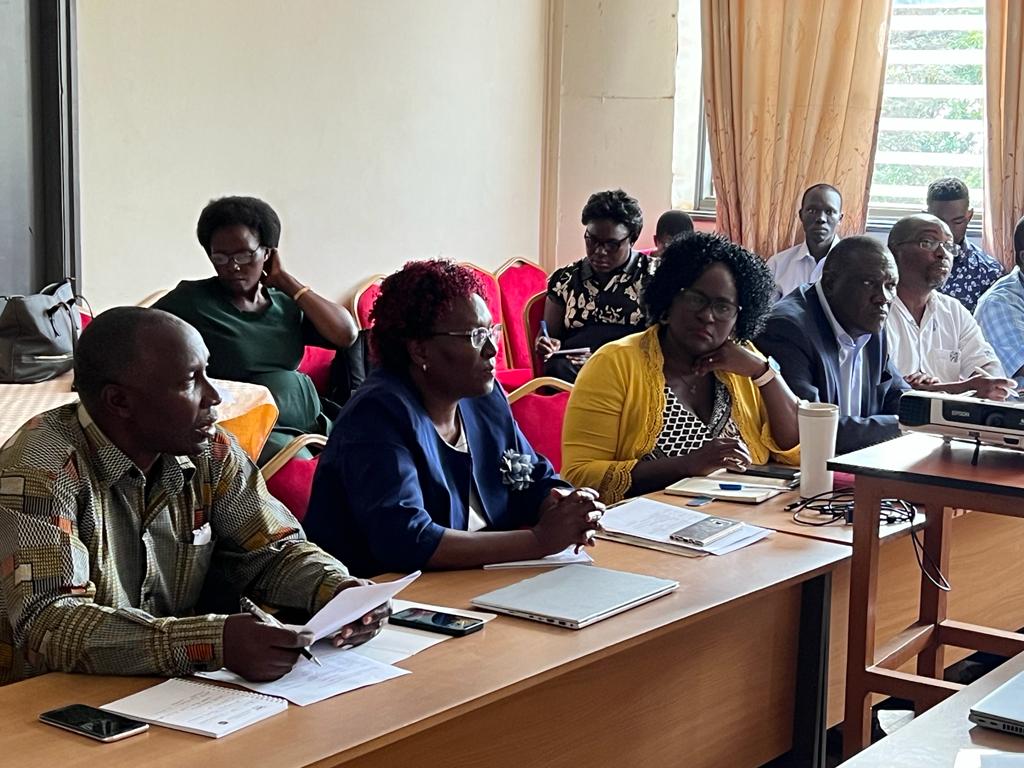 (L-R) Prof. Tweyongyere, Dean SVAR, Assoc. Prof. Nakavuma, Dr. Claire M. Mugasa, Dean SBLS, Dr. David Kahwa.
(L-R) Prof. Tweyongyere, Dean SVAR, Assoc. Prof. Nakavuma, Dr. Claire M. Mugasa, Dean SBLS, Dr. David Kahwa.
The team was welcome to the College by the Principal, Prof. Frank Nobert Mwiine, represented by the Dean, School of Veterinary Medicine and Animal Resources, Prof. Robert Tweyongyere. While extending appreciation for the upcoming collaboration, the Principal noted that Uganda is one of the main producers of fisheries products in Sub-Saharan Africa and it is the second largest foreign exchange earner for Uganda. He said the interventions in the collaboration were pertinent given the declining production that is also negatively affecting national and household income and food security which is being addressed by the Government of Uganda through promotion of aquaculture.
Prof. Mwiine highlighted some of the challenges affecting aquaculture that include lack of quality feed and seed as well as technical expertise. He said although fish diseases are yet to be considered a major challenge, with the advances in aquaculture, there is bound to be frequent disease outbreaks. He said anti-microbial resistance and drug residues were inevitable because in the process of managing fish disease, antibiotics are administered. Further he pointed out the limited knowledge and skills in fish health management which falls in the docket of veterinaries but few are well equipped with the requisite skills and knowledge.
He made reference to Makerere University’s vision of innovative teaching, learning and services responsive to national and global needs, and the strategic direction of enhancing and strengthening partnerships with industry, the community through multiple collaborations with universities and other research institutions regionally and globally.
The Principal informed the team that Makerere University offers comprehensive training programs in aquaculture, fisheries production and aquatic animal health at CoVAB and the College of Natural Sciences (CoNAS). He said at CoVAB, research in aquatic animal health has expanded to cover core areas of biosecurity and ecosystem health following the one health approach. He emphasized the need for increased collaborative ties and networks with the private sector, research institutions, universities and technical agencies, working closely with the fish farmers.
He explained that at CoVAB, the two Schools synergistically offer training across the graduate and undergraduate programs. He highlighted some of the fisheries/aquaculture research projects ongoing that include Safe Fish that is investigating phages as alternatives to antibiotic use in fish management; Novel Feeds, that is developing a feed formulation for fish larvae; Bioconversion of Industrial waste products in Nile perch , Artificial Intelligence system to balance water quality and feed; Capacity Building in aquatic animal health and environmental health as well as probiotics for use on Tilapia and Nile Perch farms.
 NARO’s Dr. Walakira ® talks of the partnership with CoVAB
NARO’s Dr. Walakira ® talks of the partnership with CoVAB
Dr. John Walakira from the National Agricultural Research Organization (NARO) noted that there was potential for a long-term relationship between CoVAB and NARO and urged the college to identify gaps that need to be filled in future in the aquaculture industry. He said the team was in the college to establish what it can do in the industry, noting that issues of diseases are recurrent and a preserve of the veterinarians. He noted that aquaculture animal health was growing very fast with over 2.5 billion fingerlings in the region and in the process, diseases are on the increase.
He said the team from Cefas was in the college to establish what was on ground for example the graduate courses as well as training for the practitioners in the industry. He said Africa has been without aquaculture related diseases but now they are getting reported and veterinarians called to take up the challenge. Because of the rich resources in Uganda, it’s time to train practitioners, he said, and that Makerere University especially CoVAB is a focal point especially in dealing with such diseases.
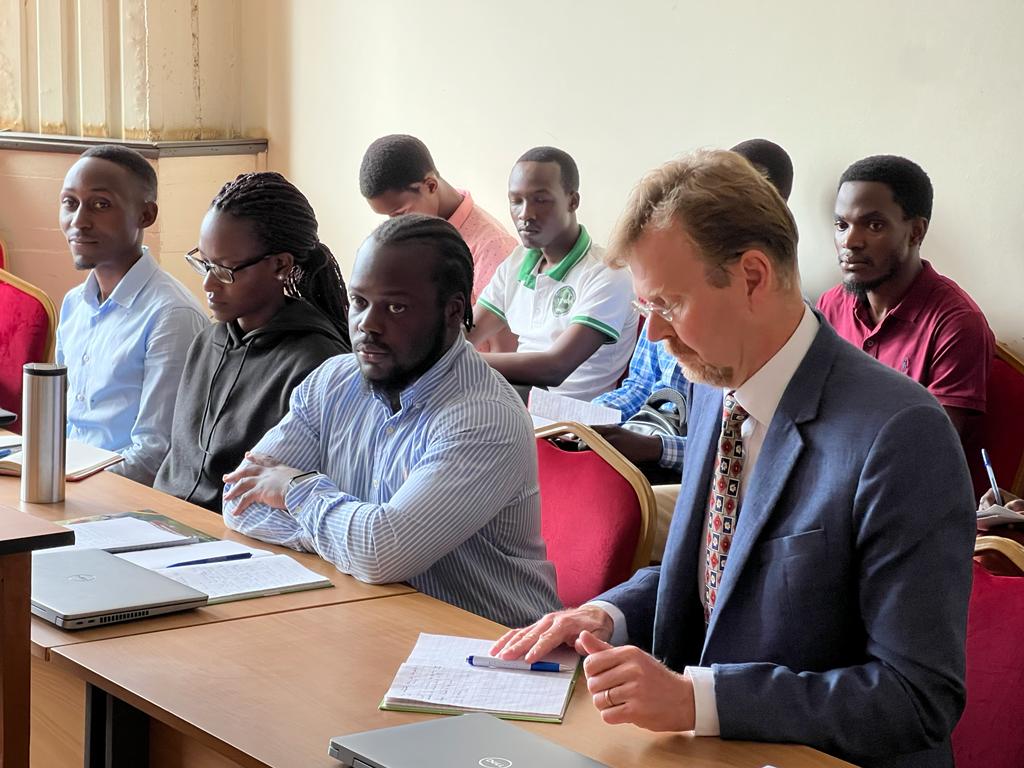 (R-L) Dr. Richard Paley flanked by Mr. Andrew Wokorac Joseph
(R-L) Dr. Richard Paley flanked by Mr. Andrew Wokorac Joseph
Dr. Richard Paley from the Centre for Environment, Fisheries and Aquatic Science (Cefas) while briefing the meeting said Cefas is an International Centre of Excellence involved in the maintenance of the health of wild and farmed seafood to minimize loss and maximize food security. He said as a world leader in marine science and technology, Cefas collects, manages and interprets data on the aquatic environment, biodiversity and fisheries. He their Weymouth lab has over 1100 scientists dedicated to aquatic health bringing together all the necessary disciplines that among many include disease inspection, diagnosis, research and development, microbiology, virology and many more.
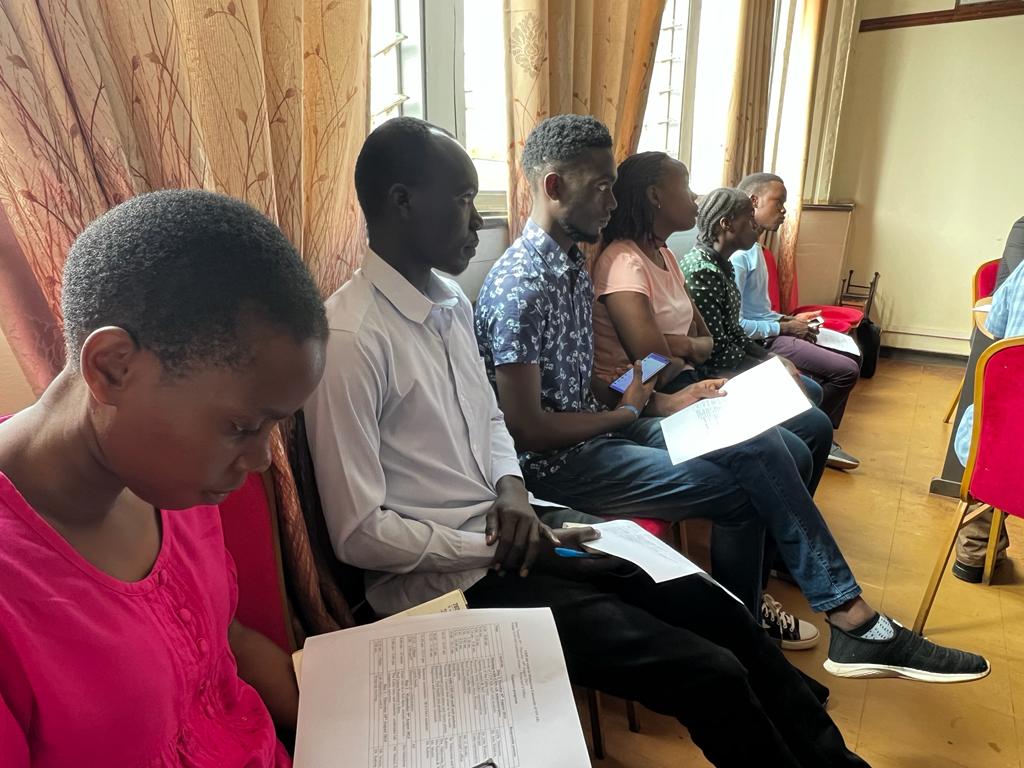 Some of the BVM students that attended the meeting
Some of the BVM students that attended the meeting
The World Organisation for Animal Health (WOAH) designated Cefas as the WOAH Collaborating Centre for Emerging Aquatic Animal Diseases. He said their aim is to function as a global resource for health and disease research, diagnostics, pathogen detection and description, and knowledge sharing associated with aquatic animals.
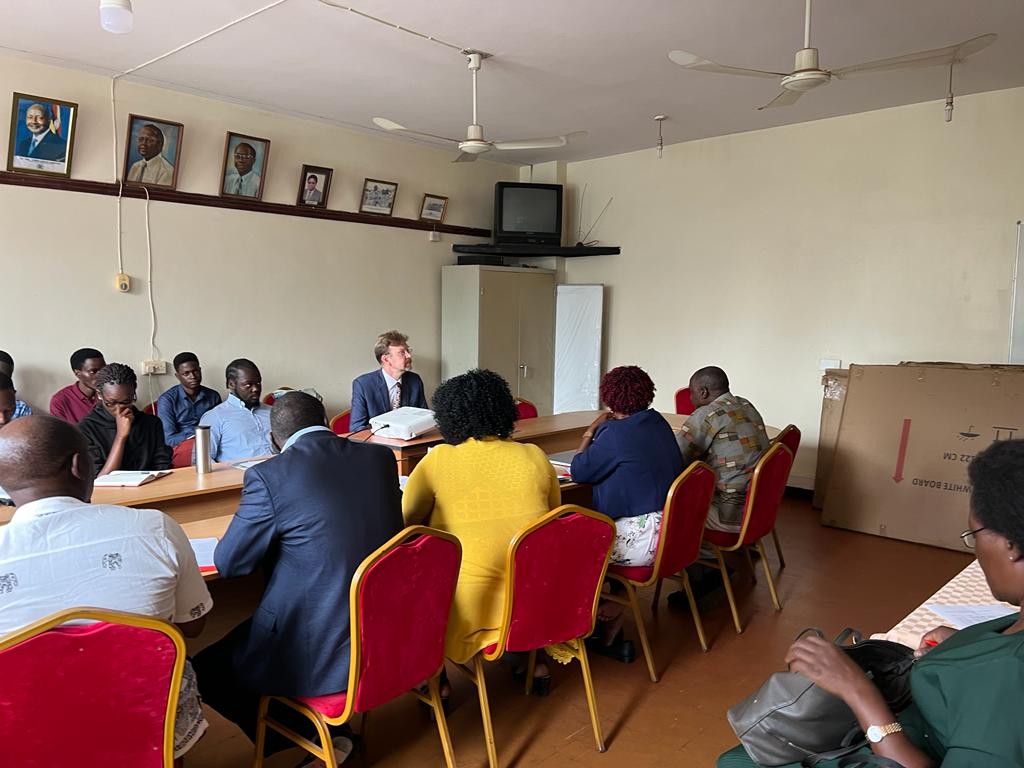 The meeting was attended among others by the Assoc. Prof. Jesca Nakavuma who is also undertaking research in Safe Fish that is investigating phages as alternatives to antibiotic use in fish management, as well as Veterinary medicine students.
The meeting was attended among others by the Assoc. Prof. Jesca Nakavuma who is also undertaking research in Safe Fish that is investigating phages as alternatives to antibiotic use in fish management, as well as Veterinary medicine students.


